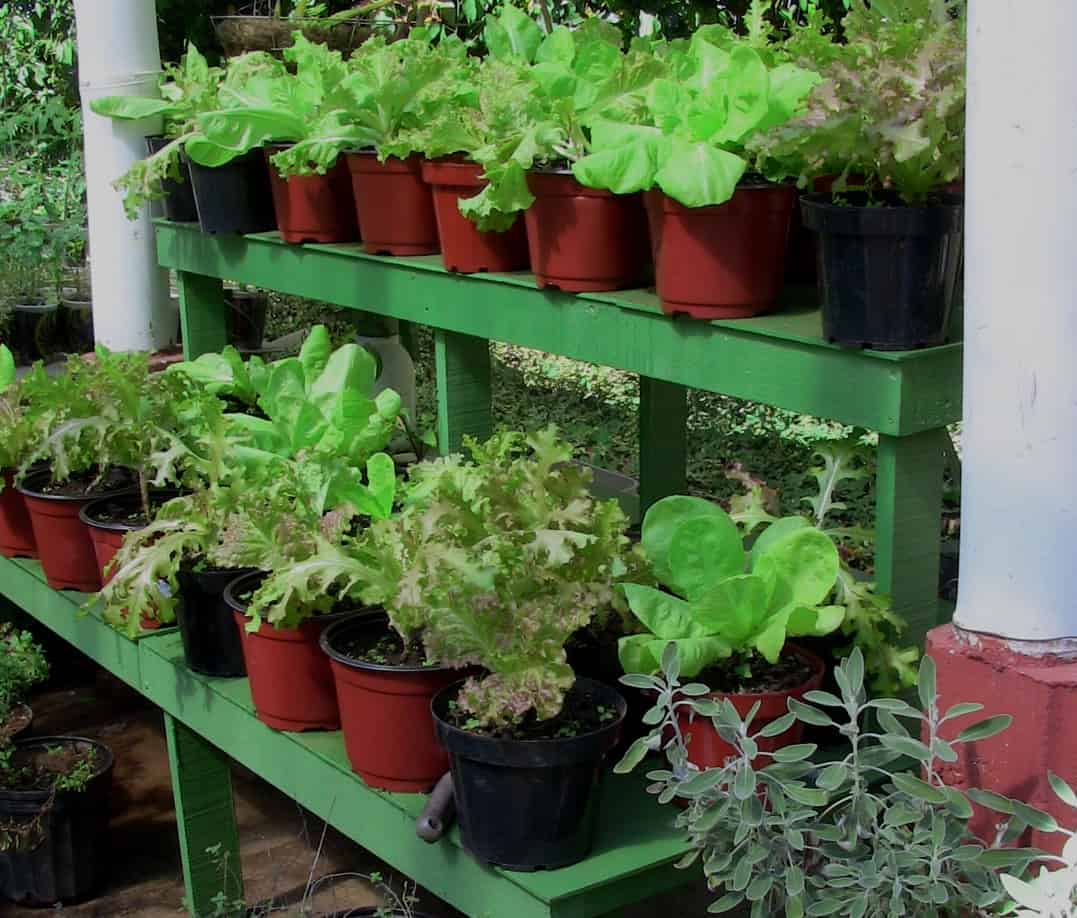As the cost of living soars, now, more than ever, gardens are among the best remedies to beat inflation. A home garden can help a family cut its yearly food budget in half or more. And did you know that the average-sized garden requires less energy to maintain than an unproductive front lawn?
Besides, homegrown vegetables taste far better and are healthier than their commercial counterparts. In the home garden, you can enjoy picking your own fresh vegetables in the peace and quiet of your backyard, instead of fighting the noise and crowds at the market.
The original costs for starting a garden are low, if you keep simplicity in mind. Some folks dash out and buy an expensive rototiller that they will use perhaps once or twice a year, resulting in homegrown vegetables that cost 10 times more than those bought at the market.
All you really need are the following basic hand tools:
- a good spade
- spade fork
- hoe
- rake
- machete
- wheelbarrow
The next step is to select the proper location. Find an area on your home site that receives full sunlight at least until noon. An area of 5 meters by 10 meters is ample for a family. It’s better to start small and add if necessary.
You may need to eliminate some trees or shrubs, but it is critical for the garden space to have optimal sunshine. In a shaded garden, plants grow poorly and suffer from more plant diseases. The area should also be well-drained to avoid problems with root diseases.
In steep terrain, terracing with concrete blocks, stone or brick will prevent erosion and add beauty to your garden.
The best size for home garden beds is 1 meter by 4 meters. The walkways can measure 40-50 meters, and should be connected to form the main drainage system for the garden. Plan your beds on the contour of the land to stop erosion.
If you don’t already have compost ready to fertilize the garden, it’s easy to acquire several sacks of commercial compost for this purpose. Most nurseries and agricultural supply stores stock it. To begin, one or two sacks per 1-by-4-meter bed will be sufficient to activate the soil’s fertility.
In most cases, you may need to invest in a fence for the garden. This will keep the neighborhood animals from damaging your plants, and also serves as a trellis for growing many plants, such as cucumbers, pole beans and peas.
Chicken wire 1 meter in height makes good material for a garden fence.
Then, of course, you’ll need seeds. Buy them in small quantities and store them in airtight plastic containers in the refrigerator until ready for use. Remember to let the container reach room temperature before opening so that moisture doesn’t condense on the seeds. You will also need several flats, available at nurseries, for starting certain kinds of seeds.
Fruit trees and ornamentals can be designed into your master landscaping plan to enhance the beauty and productivity of your new ecological health garden. Remember to plant the trees on the northern and western areas of your property. This way, they will grow to eventually shade the house in the hot afternoons and not interfere with the vegetable garden.
Costa Rica has often been called the “garden of the Americas,” and for good reason. With nearly eternal spring weather and rich soil, Costa Rica offers year-round gardening adventures.
Written by Ed Bernhardt






